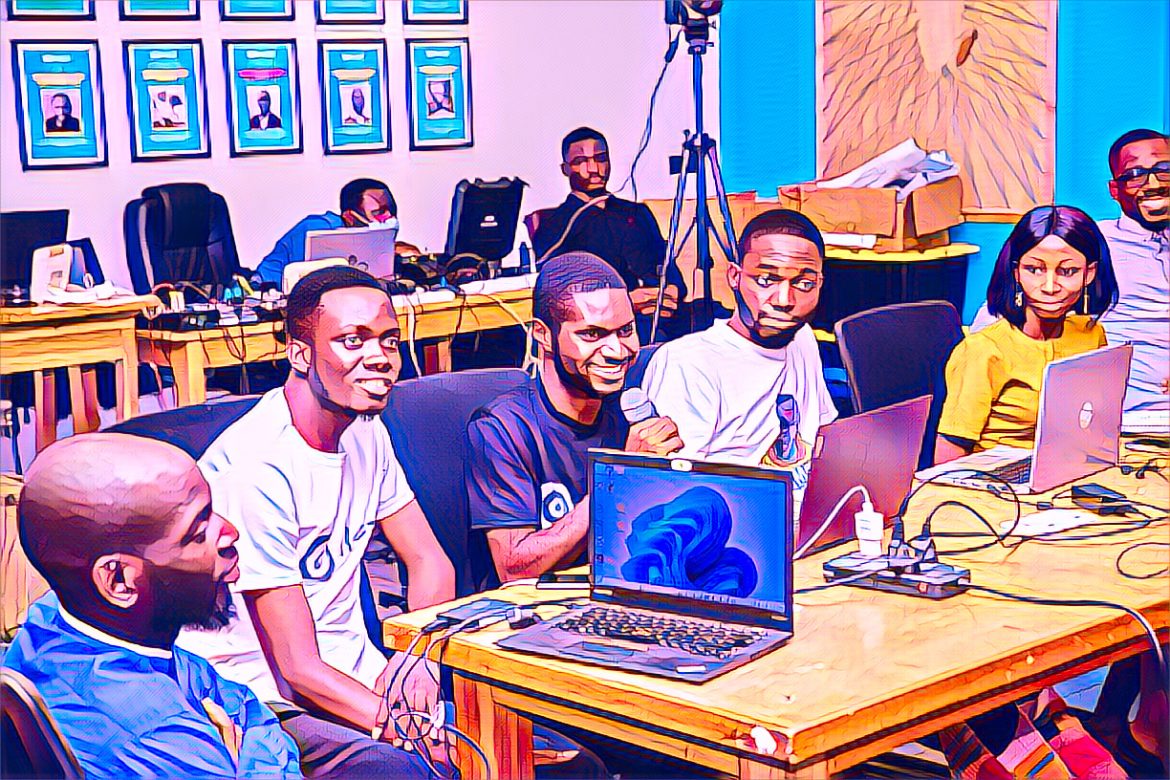Key Points
- Ghanaian startups leverage technology to improve education access.
- AkooBooks and DeafCanTalk enhance learning accessibility.
- LearnRite and STEMAIDE foster quality education for all.
Ghana’s education sector is undergoing a transformative journey, marked by both promising developments and formidable challenges. Despite significant strides toward universal education, the nation faces hurdles in terms of accessibility, affordability, and quality.
Many rural and underprivileged communities struggle with limited resources, inadequate school facilities, and high dropout rates. For a country with a growing youth population, education accessibility is vital to bridging socioeconomic divides and fostering future economic growth.
In recent years, a wave of Ghanaian startups has emerged to address these challenges, leveraging technology and innovative models to improve access to quality education.
These startups are redefining how students in underserved areas gain knowledge and skills through digital learning platforms, teacher training programs, and virtual libraries. The efforts of these startups underscore a clear message: through innovation and community-driven solutions, Ghana is poised to make education accessible to all, transforming obstacles into opportunities for a brighter future.
Startup Profiles
- Akoobooks
AkooBooks Audio Ltd is West Africa’s first publisher of and a digital streaming platform of African audiobooks. The Accra-based platform founded in 2017 by Ama Dadson has raised over $126,000 from a consortium led by Mastercard. As an experience provider, it is focused on transforming African books into engaging audiobooks that reach new audiences on mobile phones. - Deafcantalk
DeafCanTalk improves accessibility for deaf students, addressing communication barriers that hinder academic performance in Ghanaian tertiary schools. Most deaf students in Ghana receive their pre-tertiary education in segregated schools where Ghanaian Sign Language is the primary medium. However, upon entering tertiary institutions, they face integration into general classrooms with limited support, creating challenges in adapting to new learning environments. The Kumasi-based platform was developed by both Ike Agyei Mensah and his co-founder Victor Wealth-Adankai in 2021 raising $8900 from the United Nations Development Programme(UNDP) and other three investors. - LearnRite Ghana Limited
Accra-based LearnRite Ghana, founded in 2016, raised $75,000 from Hussein Kassim and Addah Gilbert to ensure equal quality education for all students. LearnRite engages experienced, bestselling textbook authors as teachers to support learning across schools. Since 2021, Best Point, a savings and loan company, has partnered with LearnRite to help parents acquire high school learning materials on flexible terms. - STEMAIDE
Accra-based STEMAIDE, founded in 2020 by Boateng Asare, in an EdTechstartup that empowers young Africans with accessible, affordable STEM education, transforming education across the continent. By fostering problem-solving, creativity, critical thinking, and innovation, STEMAIDE equips the next generation with essential skills for today’s world. Offering a variety of educational materials, tools, and resources, STEMAIDE ensures practical STEM education reaches every young African. - Craft Education Technologies
Craft Education’s Hunu platform tackles the challenges faced by over 203,000 children in Ghana with autism, ADHD, and other intellectual disabilities, who often lack access to specialised care due to high costs and limited specialists. Founded in Accra in 2016, the social enterprise developing Africa’s first teletherapy (SaaS) platform called Hunu has raised $100,000 from the African Union to unite parents, educators, and therapy providers on a single platform, enhancing collaborative efforts to improve learning outcomes for these children.
Challenges:
- Limited internet penetration: With only 30% internet penetration, rural and remote communities are often cut off from digital education resources. Limited infrastructure and high costs make it challenging for startups to reach these areas effectively.
- High data costs: Data remains expensive in Ghana, posing a barrier for low-income families who cannot afford to access online learning platforms. This issue underscores the importance of developing data-efficient solutions.
- Teacher shortages: Ghana faces a shortage of qualified teachers, particularly in rural schools. This shortage hinders the effectiveness of educational initiatives and highlights the critical need for teacher training programs like Teach For Ghana.
Opportunities:
- Government partnerships: By collaborating with government agencies, startups can expand their reach and gain additional funding, policy support, and access to public resources.
- Private sector investment: Increased private sector interest in education provides funding and resources that enable startups to scale. With corporate partnerships, startups can better sustain operations and impact.
- International collaborations: Partnerships with international organizations bring technical expertise, global funding, and knowledge-sharing opportunities, allowing Ghanaian startups to tap into larger networks and expand their impact.
Key figures and statistics
- Education budget: In 2020, Ghana allocated approximately 13% of its total budget to education, reflecting a strong government commitment to improving the sector (Ministry of Education).
- Out-of-school children: Despite progress, over 500,000 children were still out of school as of 2020, illustrating the need for alternative educational solutions (UNICEF).
- Internet penetration: Only 30% of Ghana’s population had internet access as of 2020, a significant barrier to digital education (World Bank).
- Mobile phone penetration: Mobile phone penetration stands at 80 percent, offering a potential pathway for mobile-based learning solutions (GSMA).
Ghanaian startups are paving the way for a new era of educational accessibility. By harnessing the power of technology and community-based initiatives, these startups address pressing educational needs and offer pathways to skill development and empowerment.
As Ghana continues its journey towards inclusive education, support from the government, private sector, and international organizations will be essential. With these concerted efforts, the future of education in Ghana looks promising, offering hope for equitable access to quality learning for all.




